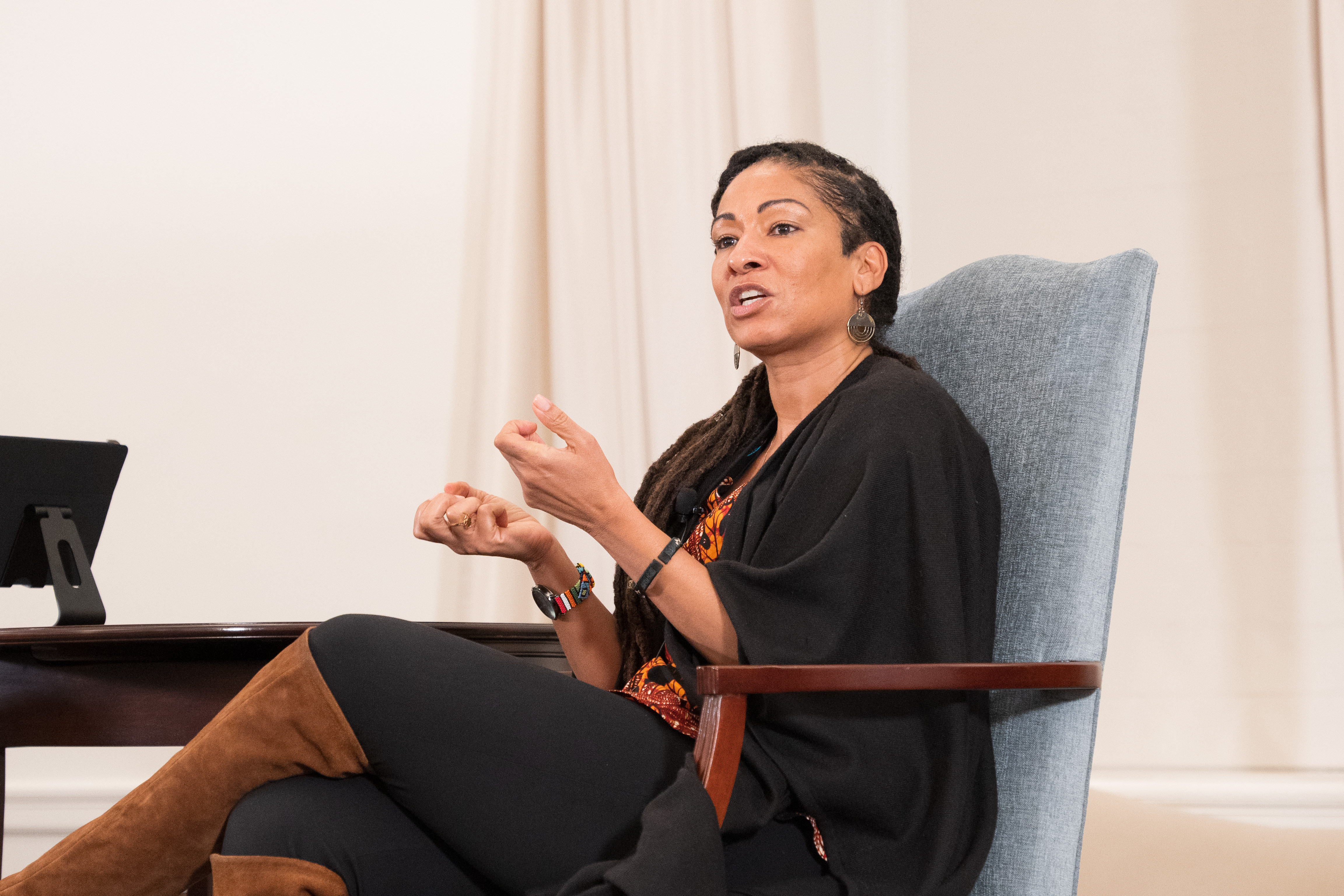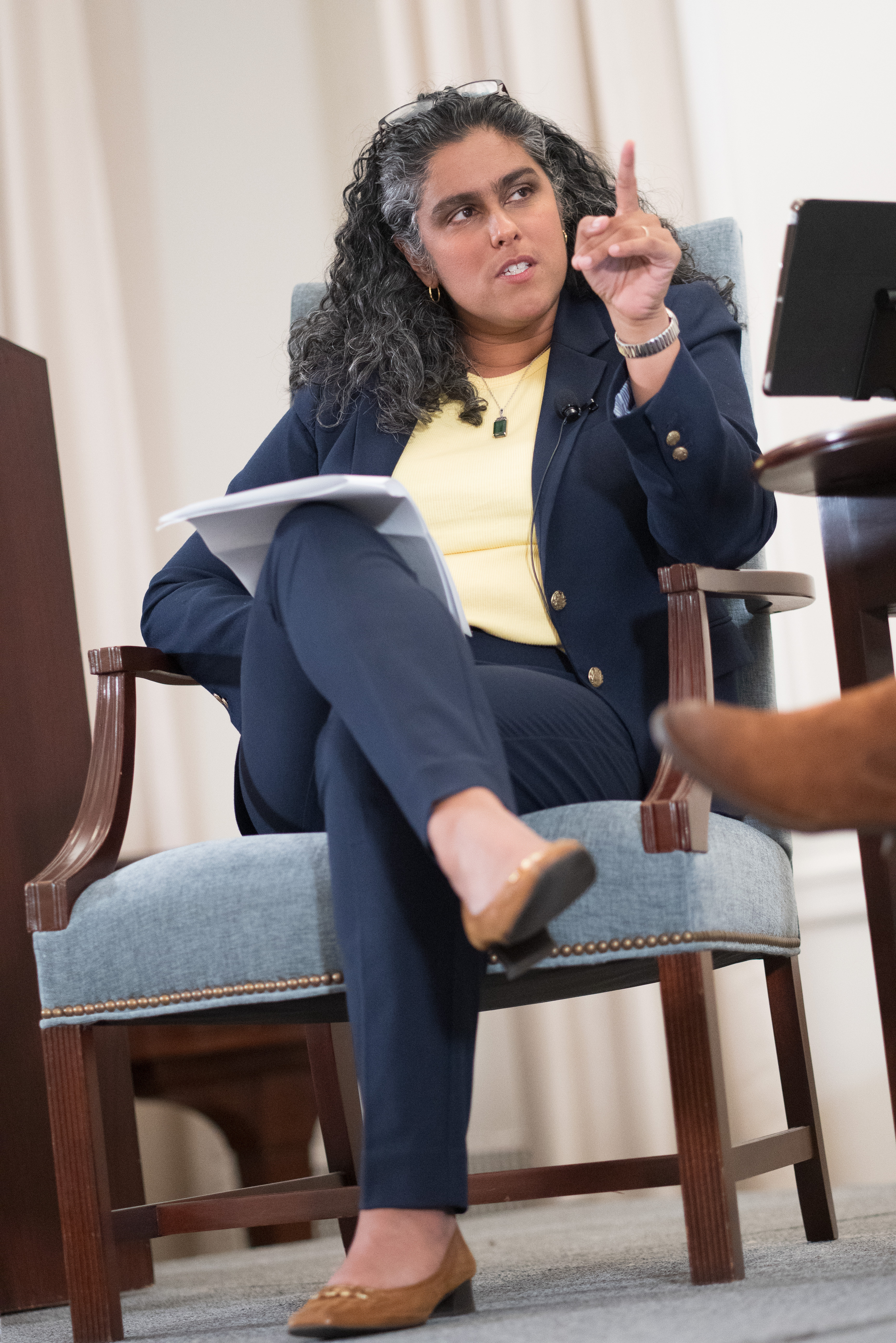On November 15, The Greenwall Foundation and NYU School of Global Public Health teamed up to host the 2022 William C. Stubing Memorial Lecture, Are Robots Racist? Rethinking Automation and Inequity in Healthcare. The Lecture, which featured Ruha Benjamin, PhD, Professor of African American Studies at Princeton University in conversation with WBUR’s Meghna Chakrabarti, was a thoughtful, engaging, and far-ranging discussion. The pair discussed the ways that, according to Prof. Benjamin, technologies both reflect and perpetuate racist dynamics within the societies in which they are used, and also the steps that can be taken to mitigate those harms. You can watch the discussion in full below.
Ruha Benjamin, PhD, and Meghna Chakrabarti Discuss Technology, Racial Bias, and More at the 2022 Stubing Lecture
Prof. Benjamin began the discussion by explaining two dominant narratives that have historically been used to understand technology: the “techno-dystopian” narrative, in which technology will “take all the jobs and rob us of our human agency;” and the “techno-utopian,” where “technology will save us, and make everything more efficient, more fair, if only we would hand over every major decision to automated systems.” However, these two frames, Prof. Benjamin argued, are “techno-deterministic,” undermining the extent to which human agency guides and informs technological advancement.
When technology is developed without a historical or cultural lens, Prof. Benjamin offered, we “should not be surprised” that it replicates the harms and biases of the culture within which it exists. “Those who are doing the designing are not bringing a wider toolset to the table” in the creation of new technologies, which can enable the creation of technologies—including AI and machine learning—that worsen social problems.

One way that automation has further entrenched social harms, Prof. Benjamin explained, is in precision medicine, and more specifically the practice of “race-norming.” She cited the NFL concussion settlement, “in which Black players were presumed to have a lower starting cognitive function as compared to white players,” as an instance in which the “precision” offered by precision medicine “has often been in the service of naming Black inferiority—Black physiology as inferior.”
But just as overreliance on race-based inputs can cause harm—as with the Black NFL players who needed to demonstrate greater injury to receive equal lawsuit payouts—so can underreliance. “Color-blind healthcare is not the antidote to racist robots,” said Prof. Benjamin.
In the face of the problems created by automated healthcare decision-making, Ms. Chakrabarti then asked, “is there a place for AI and machine learning to be a force to…actually make better decisions than doctors do?” Prof. Benjamin answered with a qualified yes: there is a place for AI to be a solution to—rather than a cause of—healthcare problems “if creators of technology [incorporate] the social science and the data on bias” and “let it inform [their] approach to design.”

To work towards a solution to the biases created and expanded by healthcare technologies, Prof. Benjamin pointed to “structural competency” and “cultural humility.” The former, a framework for understanding health disparities, calls on healthcare actors to build in an understanding of the social determinants of health when designing research and health education. The latter suggests that, rather than “considering patients’ culture as a factor or set of traits that supposedly shapes health behavior,” those thinking through healthcare problems “[flip] the gaze…and look at the values and the cultures that practitioners bring to bear in clinical interactions.”
“When we’re thinking about the way forward” toward racial equity in healthcare, Prof. Benjamin urged, “technology can play a role, but we really have to take seriously the social infrastructure, the social relationships, that are being neglected and that should be established and fostered.”
About the William C. Stubing Memorial Lecture
William C. Stubing served as President of The Greenwall Foundation for 21 years. In 2016, the Foundation established the William C. Stubing Memorial Lecture in honor of its beloved former President, who guided the Foundation to its current focus on bioethics. Previous Lectures have covered timely topics in bioethics: the public health and ethical challenges of COVID-19, the social inequities revealed by the pandemic, physician aid-in-dying, drug pricing, and genome editing.